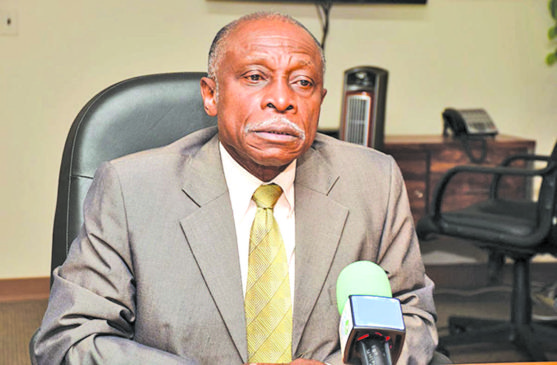
With Guyana seeking a final resolution to the Venezuelan border controversy at the International Court of Justice (ICJ), ensuring compliance and adherence to whatever ruling is made will be up to the World Security Council. This is according to Foreign Secretary Carl Greenidge.
Greenidge, who was at the time speaking during the Guyana Press Association’s (GPA) Awards Ceremony noted the importance of the ICJ giving an actual judgment, rather than an advisory opinion, in Guyana’s favour.
“It is important if that court pronounces in favour of Guyana but even more important would be if the court gives a judgement, as opposed to an advisory opinion, in favour of Guyana because failure of a party to honour a judgement may bring action by the security council.”
The security council, he added, shall, whenever it deems necessary, call upon the parties to settle their disputes by certain means. “We are arguing that Article 4 of the Geneva Convention constitutes an agreement between Guyana and Venezuela to submit the matter to any forum chosen by the Secretary General.”
Greenidge noted that Secretary General Antonio Guterres did refer the matter to the ICJ and had communicated this with all parties. It is now left to the court, he noted, to determine exactly what consent the convention gave. The former Foreign Affairs Minister further clarified certain aspects of the case.
“We are not asking the court to hand over territory to Guyana, we’re not asking whether the exclusive economic zone belongs to Guyana. We are asking whether the 1899 treaty still stands and if it still stands, does the maritime space as well as the land space still stand.”
“Another question is whether if a party does not appear before the court, can the proceedings still continue. Failure of one party to appear does not prevent consideration. If one party does not appear, it is for the court to satisfy itself that it has jurisdiction, in circumstances when one party does not appear. That is where we are now.”
Guyana’s case before the ICJ comes up in March of next year. Venezuela has said since last year, however, that they would not participate. The country, which is in the midst of economic, political and social turmoil, has said that it prefers dialogue.
Guyana filed an application last year requesting the World Court to confirm the legal validity and binding effect of the 1899 Arbitral Award regarding its boundary with Venezuela, after the UN SG referred the matter to the ICJ.
The controversy arose as a result of the Venezuelan contention that the Arbitral Award of 1899 about the frontier between British Guiana and Venezuela was null and void.
According to Guyana’s application to the World Court, for more than 60 years, Venezuela had consistently recognised and respected the validity of the binding force of the 1899 Award and the 1905 Map agreed by both sides in furtherance of the Award.
“Venezuela had only changed its position formally in 1962 as the United Kingdom was making final preparations for the independence of British Guiana and had threatened not to recognise the new State, or its boundaries, unless the United Kingdom agreed to set aside the 1899 Award and cede to Venezuela all of the territory west of the Essequibo River, amounting to some two-thirds of Guyana’s territory,” Guyana submitted in its application to the World Court.
The court document further noted that while Venezuela has never produced any evidence to justify its belated repudiation of the 1899 Award, the neighbouring country has used this as an excuse to claim territory awarded to Guyana in 1899, to inhibit Guyana’s economic development, and to violate Guyana’s sovereignty and sovereign rights.



